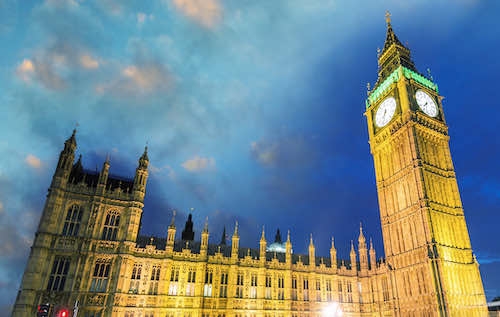The Online Safety Bill must include criminal offences to tackle scam financial adverts to tackle the “Wild West online”, according to a report from MPs and Peers today.
The Joint Committee on the draft of the Online Safety Bill has recommended major changes to the Bill before it goes before parliament in 2022.
The changes include making scam financial adverts a specific criminal offence, a move called for by many in the industry.
The Committee called for online fraud to be designated as a priority, so “big tech” would have to control the risk of content appearing on the site.
Damian Collins MP, chair of the Committee, said: “The Committee were unanimous in their conclusion that we need to call time on the Wild West online. What’s illegal offline should be regulated online.
“For too long, big tech has gotten away with being the land of the lawless. A lack of regulation online has left too many people vulnerable to abuse, fraud, violence and in some cases even loss of life.”
The recommendations from the Committee may be added to the Bill before it comes before Parliament for approval.
The Committee recommended that paid-for advertising, including financial services adverts, should be covered by the Bill. They are currently not included.
It had heard how victims of fraud lost £2.3bn over the past year alone and 85% of scams rely on the internet.
MoneySavingExpert’s founder Martin Lewis had testified before the committee, highlighting investment scams.
The Competition and Markets Authority had told the Committee that current legislation means that providers have to take proactive steps to minimise the risk from content designed to damage people’s finances, so the new legislation could actually undermine existing rules, and weaken protections unless it is amended.
Sarah Coles, personal finance analyst at Hargreaves Lansdown, said: “The Online Safety Bill needs to protect us from online fraud, so the fact that the draft bill could end up actually weakening existing protections is alarming. These changes seem an eminently sensible way to protect us from a risk that does so much financial and emotional damage to so many people.
“There are a number of problems with the bill as it stands, not least the fact that paid adverts aren’t included, and we know this is how enormous numbers of fraudsters trap their victims.
“In addition, it’s not designated as ‘priority illegal content’, and isn’t specifically mentioned in the way other risks are. It means providers only have a duty to remove fraud when it’s reported by users. And there’s a risk that it’s only likely to be reported by users when they have fallen victim.”
She welcomed the recommendations from the Committee for fraud to be specifically mentioned alongside other risks, so the bill itself rather than secondary legislation would require platforms to proactively stop fraud from appearing.
Debbie Barton, financial crime prevention expert at Quilter, also welcomed the report from the Committee. She said that scammers have been allowed to operate with impunity online for too long, including impersonating the brands of well-known financial services firms and using cheap adverts to reach unsuspecting investors.
She said: “The Online Safety Bill ensures technology companies face a new legal duty to tackle harm caused as a result of content on their platforms. Pleasingly, the government has already included user-generated fraudulent content in scope of the Bill, but it has, unfortunately, excluded fraudulent content on adverts and on cloned websites. This appears illogical given that a scammer can simply use a cheap advert to evade the new legislation.
“We hope that with the Committee’s recommendation to also include adverts in scope of the Bill, the calls for change become overwhelming and the government decides to take action.”

